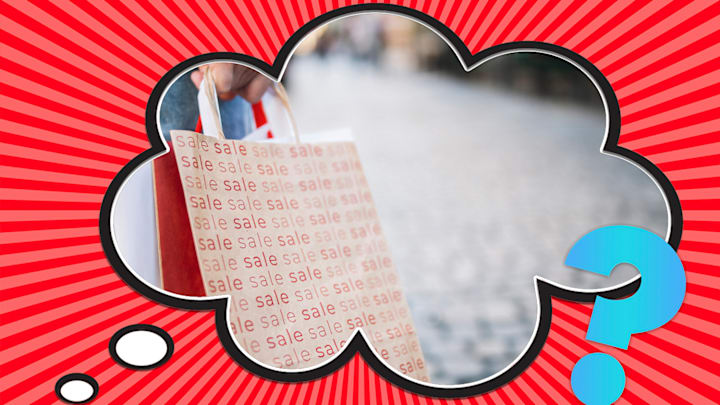When people emerge from residential hibernation the day after Thanksgiving, they pour into shopping centers. Consumers spent a record $9.12 billion just for online shopping in 2022 during Black Friday, bolstering the bottom line for retailers like Walmart, Target, Best Buy, and other online outlets.
If Black Friday is such a financial benefit, why is it called Black Friday? The black modifier was usually reserved for cash-draining events like the Thursday that precipitated the 1929 stock market crash or the Friday on which the 1869 gold market collapse led to financial ruin.
It turns out that the label didn’t always have the positive holiday-spending connotation it enjoys today. Beginning in the 1950s, according to Snopes, employers and the media began observing that a lot of people called out sick the day after Thanksgiving—traditionally not a paid holiday—to give themselves a four-day weekend. For businesses, that Friday was indeed bleak, as productivity slowed to a crawl. (Eventually, offices capitulated and gave employees the day off.)
Law enforcement also had reason to be disgruntled with that particular Friday. With everyone skipping work and kids off school, traffic in major cities became a problem. In Philadelphia, police who were forced to deal with logjams and work mandatory shifts to cope with the congestion started to dread the day. Again, the “Black Friday” label seemed appropriate.
Eventually, this negative term spread via word-of-mouth and the media. Retailers in Philadelphia even tried to rephrase it as Big Friday to avoid the association with disaster, but it didn’t stick. It soon became synonymous with record profits, and the term was permanently adopted for the frenzied rush of shoppers using their day off to get their shopping done.
Have you got a Big Question you'd like us to answer? If so, let us know by emailing us at bigquestions@mentalfloss.com.
A version of this article was originally published in 2019 and has been updated for 2023.
